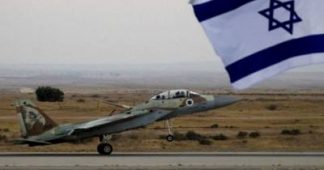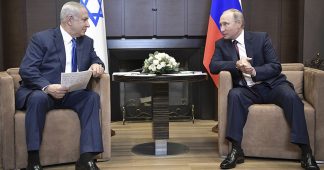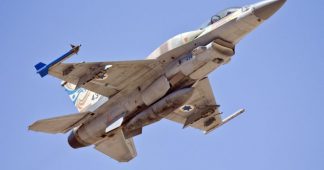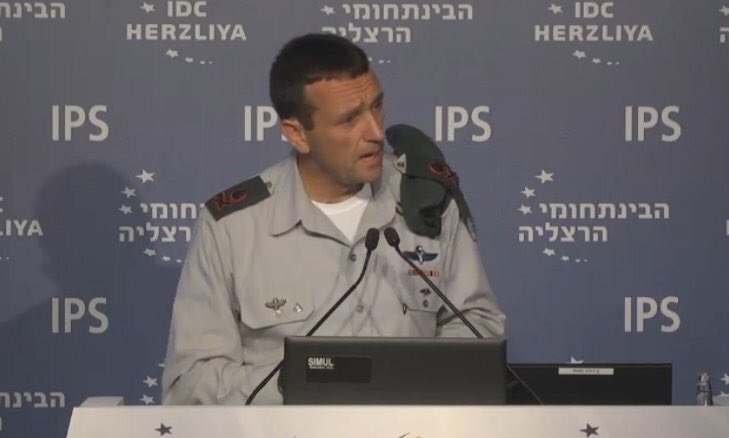Israel responds to defeat of Islamist rebels in Syria with threat of wider regional war
By Jean Shaoul
25 November 2017
Israel’s Defence Minister Avigdor Lieberman has asked for an immediate US$1.4 billion increase in the Israel Defense Forces’ (IDF) budget, citing the “new threats” developing along its northern border with Syria.
This is a reference to the Syrian government forces, the Lebanese Shia militia Hezbollah as well as Iran that destroyed the power of the various Israeli-backed rebel groups and now control the border region.
Crucially, the defeat and driving out of ISIS forces around the Euphrates River in the south east of Syria, along the border with Iraq, has effectively secured the “land bridge” linking Tehran to the Mediterranean via its allies, Iraq, Syria and Lebanon.
Contrary to Tel Aviv’s best calculations, and after years of buying expensive equipment for the IDF to deal with Iran, Israel now faces a better armed and trained Hezbollah as well as a battle hardened and re-equipped Syrian army, directly supported if not led by Iran on its northern doorstep. It is therefore seeking to counter Iranian influence and the Syrian government’s consolidation of control over the areas previously held by the various Islamist militias.
Lieberman declared that Israel would not allow Iran to “dig in” or allow Syria to become a “forward position against Israel.” Israel has launched several air strikes on Syrian targets in recent weeks, even acknowledging them, something never previously admitted. Housing Minister and former general, Yoav Galant, asserted that Hezbollah has 100,000 launch-ready missiles.
The Israeli military carried out its largest military manoeuvres in 20 years in September, with tens of thousands of soldiers simulating the defence of Israel against a Hezbollah invasion and attempted seizure of Israeli towns. Israel announced that it would not hesitate to intervene to “protect” the Druze residents of the Jebel al-Druze region in Syria near the Israeli border and has on several occasions fired warning shots against Syrian operations in the area.
The IDF also deployed Iron Dome anti-missile batteries throughout the country, ostensibly in preparation for an escalation of tensions along the border with the Gaza Strip.
Prime Minister Benyamin Netanyahu, having for more than 20 years called Iran an “existential” threat to Israel, now faces Iranian forces just five kilometres from the Golan Heights border. He has indicated that Israel would do everything it could to contain Iran, even if it had to act alone, and accused Tehran of plotting to destroy Israel from Syria.
Netanyahu alleged that Iran, one of the monitors of a ceasefire deal in Syria along with Russia and Turkey, wants to station its troops on Syrian territory—a zone stretching from the Syrian-Jordanian-Israeli border junction at the Golan Heights up to Mount Hermon—on a permanent basis, “with the declared intent of using Syria as a base from which to destroy Israel.”
According to the DebkaFile website, Netanyahu told Russian President Vladimir Putin on Wednesday that as long as Iranian and Hezbollah forces were present there, Israel could not guarantee not to open fire if its border security was threatened and demanded their removal.
Israel’s actions are a key factor threatening to ignite a wider regional conflagration, with Saudi Arabia seeking to draw Israel directly into a war against Iran, its archrival in the region.
The failure of the Sunni Persian Gulf oil monarchies, in cooperation with the US, Britain, Turkey, Jordan and Israel, to topple the regime of Syrian president Bashar al-Assad as part of Washington’s broader strategy of isolating Iran and reordering the resource-rich region in its own interests, has intensified Israel’s crisis.
The near-seven year war to unseat Assad follows the failure of Israel’s war against Lebanon in 2006 that was intended to spread to Syria and lead to Assad’s overthrow, with Washington entering the war alongside Israel. Israel was forced to end the war after 33 days, having destroyed much of Lebanon’s infrastructure but without achieving either US intervention or any of its political objectives.
While the US is withdrawing its Islamist proxies from Syria, including ISIS and al-Qaeda-linked affiliates and splinter groups it claims to be fighting in Iraq and Syria, this is only to prepare new military plans. Following his visit to Saudi Arabia and Israel to build up an anti-Iran coalition, President Donald Trump signalled a sharp intensification of US hostility toward Iran, demanding the “renegotiation” of the 2015 nuclear deal with Tehran and the re-imposition of sweeping sanctions—in defiance of Washington’s European allies who support the deal.
Viewing Trump’s words as a green light, Riyadh and its Gulf allies, working closely with Israel, have stoked up tensions with Tehran—with Crown Prince Mohammed bin Salman stating that Iran’s “supreme leader is the new Hitler of the Middle East.”
Saudi Arabia has escalated the blockade of Yemen, where it accuses Iran of arming the Houthi rebels and launching a missile against Riyadh airport, both charges that Tehran denies. The Saudis have cited Qatar’s close links with Iran, with which it shares the giant South Pars gas field, and its support for the Muslim Brotherhood and its affiliates in Egypt, Hamas in Gaza and elsewhere in the region, to justify its blockade of Qatar.
Crucially, Saudi Arabia has threatened Hezbollah and Lebanon. Forcing Lebanese Prime Minister Saad Hariri, who heads a coalition with Hezbollah, to resign, Riyadh branded Hezbollah a terrorist organisation and called for its destruction. Beirut had to end its acquiescence to Hezbollah’s “war” against the Persian Gulf monarchy in Syria and confront Hezbollah “by force,” Riyadh warned, or face economic and financial sanctions. Saudi nationals were told to leave Lebanon.
Hariri’s “resignation” had the hallmarks of a Saudi attempt to deliberately foment a crisis aimed at provoking an Israeli-Iranian confrontation in Lebanon. Hezbollah leader Hassan Nasrallah alleged that the organization had received credibly-sourced information that Riyadh had offered Israel billions toward the cost of the next war on Hezbollah.
According to leaked cables aired by Israel’s Channel 10 news, Israel instructed its overseas embassies to lobby in support of Saudi Arabia and its efforts to destabilise Lebanon and stress Iran and Hezbollah’s involvement in “regional subversion.”
The Saudis’ ramping up of tensions prompted Lebanon’s army chief General Joseph Aoun to urge his forces to be ready to face the “threats of the Israeli enemy” on Lebanon’s southern border. Israel has been holding a military exercise near its border with Syria since the weekend.
The Saudi monarchy summoned Palestinian Authority President Mahmoud Abbas to Riyadh, where he was told to support Trump’s soon to be announced “peace initiative” brokered by Trump’s son-in-law Jared Kushner, or make way for someone else—meaning Mohammed Dahlan. The aim is to provide political cover for an alliance between Saudi Arabia and other Arab states, the US and Israel against Iran. At the same time, the Trump administration announced it will close the Palestinian Liberation Organisation’s (PLO) diplomatic mission in Washington because it has taken cases against Israel to the International Criminal Court.
Israel’s energy minister Yuval Steinitz has spoken publicly about close Saudi-Israeli and regional cooperation, while IDF chief of staff Lieutenant General Gadi Eisenkot, in an unprecedented interview to a Saudi news website in Arabic, said that Israel was ready to share “intelligence information” with Saudi Arabia as they both had a common interest in standing up to Iran.
There are reports of Israeli military forces operating in Egypt’s Sinai against the Islamic State, and in the north where Jordan, Israel and Syria converge.
Eisenkot claimed that Hezbollah posed a threat to the Arab world, while Israel supposedly wasn’t interested in war with Lebanon or Syria.











